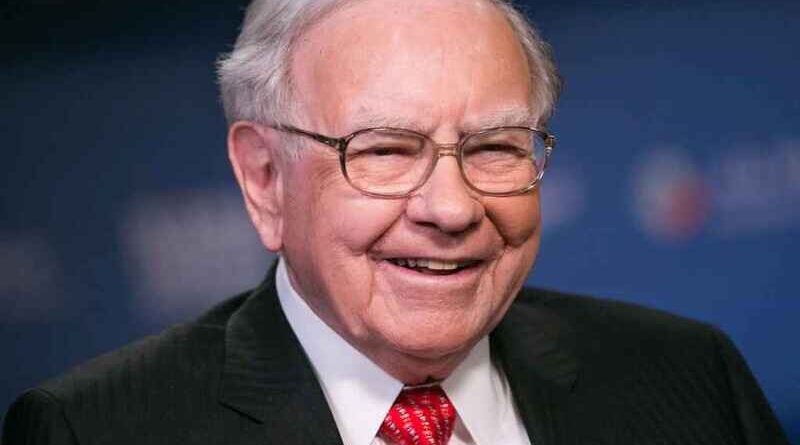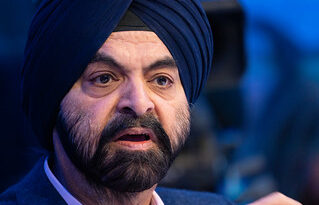Mastering the Art of Value Investing: The Warren Buffett Story
Warren Buffett: The Man Behind the Billions
Warren Edward Buffett, an American business mogul, investor, and philanthropist, currently wears the hat of chairman and CEO at Berkshire Hathaway. As of September 2023, he boasts a net worth of $121 billion, making him the seventh-richest individual globally.
Buffett is celebrated worldwide as one of the foremost fundamental investors. Born on August 30, 1930, in Omaha, Nebraska, his fascination with business and investing began early in life.
He kicked off his journey at the Wharton School of the University of Pennsylvania in 1947 before graduating from the University of Nebraska at the remarkably young age of 19. Later, he pursued further education at Columbia Business School, shaping his investment philosophy around Benjamin Graham’s pioneering concept of value investing.
Buffett’s philanthropic endeavors are equally noteworthy; he’s pledged to give away 99 percent of his wealth through the Bill & Melinda Gates Foundation.
The Empire of Berkshire Hathaway
- Berkshire Hathaway, a multinational conglomerate holding company headquartered in Omaha, Nebraska, has a rich history.
- Initially founded in 1839 as a textile manufacturing company, it underwent a transformation in 1970, evolving into a diversified holding company.
- Under Warren Buffett’s leadership since 1965 and with Vice Chairman Charlie Munger, Berkshire Hathaway has consistently seen impressive growth, with an average annual increase in book value of 20 percent.
- The company’s primary focus is the insurance business, with retained premiums, known as float, invested in a diverse portfolio of subsidiaries, equities, and other securities.
- Berkshire Hathaway’s insurance brands include well-known names like GEICO and General Re, and its interests span various sectors, including confectionery, retail, railroads, home furnishings, machinery, jewelry, apparel, electrical power, natural gas distribution, and more.
- As of 2022, the company reported substantial figures, with $302.1 billion in revenue, but with operating and net income showing as -$30.6 billion and -$22.8 billion, respectively.
- Berkshire Hathaway’s total assets are valued at $948.4 billion, and total equity stands at $472.4 billion.
- Warren Buffett holds significant power in the company, with 30.71 percent of the aggregate voting power and 16.45 percent of the economic interest.
- The company is also a major American employer, providing jobs to approximately 383,000 individuals.
The Transformation of Berkshire Hathaway
- Berkshire Hathaway‘s roots trace back to a textile manufacturing company established in 1839 by Oliver Chace as the Valley Falls Company in Valley Falls, Rhode Island.
- Initially operating in the textile industry, it was named after two Massachusetts textile firms: Hathaway Manufacturing Company and Berkshire Cotton Manufacturing Company.
- The merger of Berkshire Cotton with Hathaway in 1955 gave birth to Berkshire Hathaway, Inc.
- Warren Buffett entered the picture in 1965 when he assumed control of the struggling New England textile company.
- Over the years, Buffett’s vision and leadership transformed Berkshire Hathaway into a multinational conglomerate headquartered in Omaha, Nebraska.
- The company expanded its operations far beyond textiles, venturing into diverse sectors, including insurance, retail, railroads, home furnishings, machinery, jewelry, apparel, electrical power, and natural gas distribution.
- Today, Berkshire Hathaway is one of the largest companies globally, boasting a market capitalization of $485 billion.
- It owns a vast portfolio of businesses and subsidiaries, including GEICO, Berkshire Hathaway Specialty Insurance, MedPro Group, Benjamin Moore, Dairy Queen, Fruit of the Loom, Nebraska Furniture Mart, Marmon, and many more.
- The success of Berkshire Hathaway can be attributed to Warren Buffett’s value investing philosophy and his ability to identify undervalued companies.
Warren Buffett’s Investment Principles
- Warren Buffett‘s investment philosophy is renowned for its focus on long-term value investing.
- He seeks companies with strong fundamentals, substantial earnings potential, and the ability for continued growth.
- His investment strategy is guided by a set of principles categorized into four areas: business, management, financial measures, and value.
Business:
- Buffett prefers investments in businesses he can thoroughly analyze, avoiding the pitfalls of new and unproven ventures that led to significant losses during the dot-com bubble burst in the early 2000s.
- He evaluates a company’s track record, assessing whether they historically reinvest profits into the business or redistribute funds to shareholders through dividends.
- Transparency is a critical factor in his evaluation process, as companies that openly disclose their mistakes earn his trust.
- Buffett seeks out companies that make innovative strategic decisions rather than mimicking competitors.
Financial Measures:
- In the financial arena, Buffett focuses on low-leverage companies with high profit margins.
- His emphasis on Economic Value Added (EVA) calculations sets him apart. EVA estimates a company’s profits after removing shareholders’ stakes, taking into account over 160 potential adjustments.
Value:
Warren Buffett’s investment philosophy centers on long-term value investing. It encompasses starting early, identifying undervalued stocks, avoiding overpaying for investments, conducting thorough research, maintaining patience and discipline, and simplifying the approach.
Buffett’s Investment Success
- Warren Buffett’s investment success is staggering. Since becoming CEO of Berkshire Hathaway in 1965, he has overseen a remarkable over 4,450,000 percent return on the company’s Class A shares.
- His portfolio concentration is a significant contributor to his success, with approximately 61 percent of Berkshire Hathaway’s $353 billion investment portfolio concentrated in just three brand-name stocks: Apple, Bank of America, and American Express.
- This concentrated approach allows him to allocate substantial resources to his top investment ideas, with Apple alone accounting for over 46 percent of Berkshire’s investment portfolio.
- Buffett’s strategy involves investing in businesses with sustainable competitive advantages and trustworthy management teams. He has held onto these investments for years, if not decades.
- His ability to calculate the Economic Value Added (EVA) metric, evaluating a company’s profits after removing shareholders’ stakes, is another factor contributing to his success.
Famous Quotes of Warren Buffett
Warren Buffett’s wisdom is encapsulated in his famous quotes, offering insights into investment, wealth, and life, such as:
- “If you don’t find a way to make money while you sleep, you will work until you die.”
- “The best investment you can make is an investment in yourself… The more you learn, the more you’ll earn.”
- “Do not save what is left after spending, but spend what is left after saving.”
- “We don’t have to be smarter than the rest. We have to be more disciplined than the rest.”
- “You don’t need to have extraordinary effort to achieve extraordinary results. You just need to do the ordinary, everyday things exceptionally well.”
- “Look for 3 things in a person. Intelligence, Energy, & Integrity. If they don’t have the last one, don’t even bother with the first two.”
- “What you really want to do in investments is figure out what’s important and knowable. If it’s unimportant or unknowable, you forget about it.”
- “Diversification may preserve wealth, but concentration builds wealth.”
- “When they get their ego involved, people do things they shouldn’t do.”
- “You have to turn over a lot of rocks to find those little anomalies. You have to find the companies that are off the map – way off the map.”
Warren Buffett in Recent News
Warren Buffett has made headlines recently for several reasons:
- According to a Yahoo Finance article, his net worth has increased by over $16 billion in a year, reaching an estimated $124 billion.
- Despite his immense wealth, Buffett is known for his frugal lifestyle. He continues to reside in the house he bought in the 1950s and drives a modest car.
- Buffett recently resigned from his trustee position at the Bill and Melinda Gates Foundation, marking a significant development in his philanthropic involvement.
- American Express’s CEO reached out to Warren Buffett to discuss pandemic-related losses, seeking his advice and expertise.
Buffett’s Controversies
Despite his towering success, Warren Buffett has not been immune to controversy.
- During the 2008 financial crisis, his investment in Goldman Sachs drew criticism, even though he supported the company and its management.
- In the 1970s, his company, Blue Chip Stamps, faced an SEC investigation concerning its role in the acquisition of Wesco Financial Corporation, resulting in damages paid to Wesco shareholders.
- When he acquired the Buffalo Evening News in 1977, Buffett faced antitrust charges, although he ultimately prevailed in the legal proceedings.
- In 1990, Berkshire Hathaway’s acquisition of a 12 percent interest in Salomon Brothers led to Buffett becoming embroiled in controversy following U.S. Treasury action against Salomon Brothers.
Despite these controversies, Warren Buffett’s reputation as an investor remains highly regarded, thanks to his enduring investment philosophy and commitment to long-term success.
References
Books:
- “The Snowball: Warren Buffett and the Business of Life” by Alice Schroeder – This biography provides an in-depth look at Buffett’s life, from his early years to his rise as an investment legend.
- “Warren Buffett’s Ground Rules: Words of Wisdom from the Partnership Letters of the World’s Greatest Investor” by Jeremy C. Miller – This book analyzes Buffett’s partnership letters to uncover his investment principles.
- “The Warren Buffett Way” by Robert G. Hagstrom – A classic book that explores Buffett’s investment philosophy and strategies.
- “Buffett: The Making of an American Capitalist” by Roger Lowenstein – Offers insights into Buffett’s life, investments, and his evolution as a businessman.
Documentaries:
- “Becoming Warren Buffett” (HBO) – This documentary delves into Warren Buffett’s life, including his personal journey and investment strategies.
- “Buffett’s Biggest Deal” (PBS) – Focuses on Buffett’s acquisition of BNSF Railway and his long-term investment approach.


